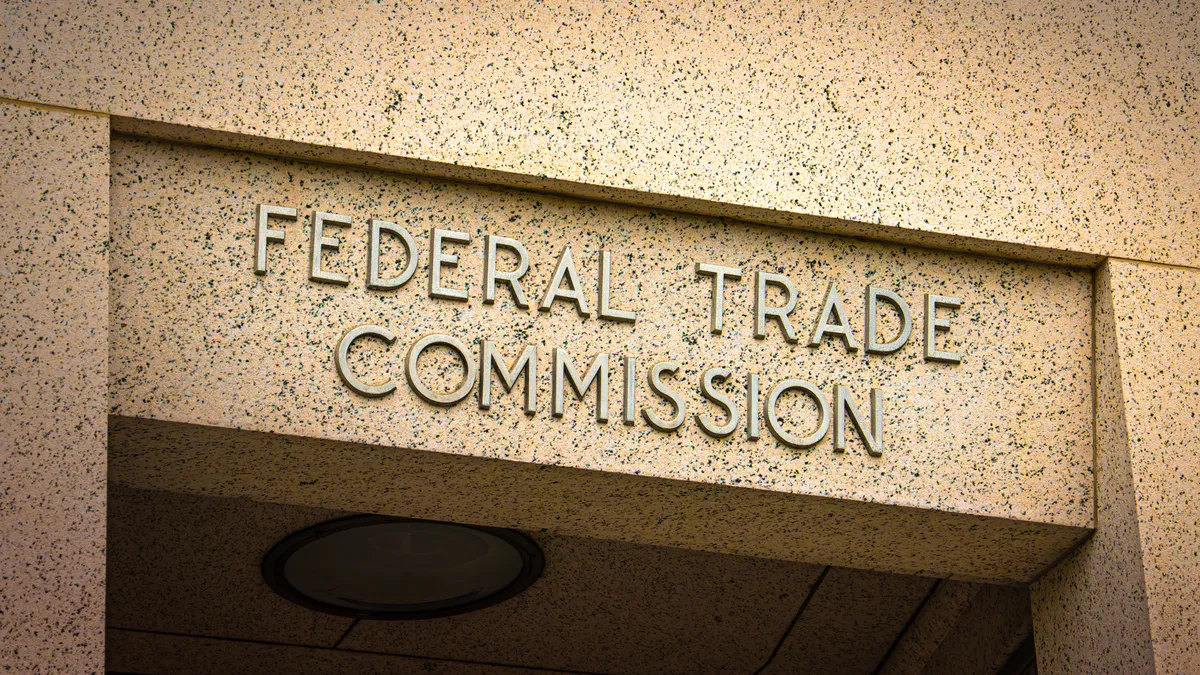Dive Brief:
- Earlier this month, the Federal Trade Commission ended the comment period for its proposed trade regulation rule on unfair or deceptive fees, with over 60,000 comments received.
- If implemented, the Trade Regulation Rule on Unfair or Deceptive Fees, announced in October, would prohibit businesses from charging hidden fees that are not disclosed upfront in a transaction.
- A coalition of 11 real estate organizations, including the National Apartment Association, the National Multifamily Housing Council and the National Association of Home Builders, provided comments in a letter dated Feb. 7. Chief among their concerns is that the rule’s broad nature causes it to “lack utility” as applied to the housing industry, the letter states.
Dive Insight:
The rule is designed to apply broadly to multiple industries, with booking hotels, buying concert tickets and renting apartments specifically cited in an FTC release announcing the rule.
“The proposed rule would provide a level playing field for honest businesses by requiring all businesses to quote total prices at the start of the purchasing process and to remove false or misleading information about fees from the marketplace,” the FTC said in the release.
In the existing framework of the multifamily industry, fees on top of the cost of rent are used to cover conditional or concierge costs, according to the letter. State regulations govern the application of fees, as well as landlord-tenant relationships.
“A one-size-fits-all requirement would interfere with the breadth and differences in states’ fee requirements that already cover limitations in amounts of specific types of rental housing fees, refundability, return and disclosure requirements,” the real estate coalition’s letter reads.
The letter goes on to state that additional regulations on the industry would disincentivize development of more rental housing. Other concerns include the lack of consideration in the new proposed rule of statistics related to fees in the housing industry, and the possibility that the new rule could be vulnerable to legal attacks.
Affordability issues
Consumer protection groups are of another mind. A coalition of 52 such organizations, including the Consumer Federation of America, submitted a letter endorsing the new rule and its potential impact on rental agreements.
“Junk fees, added on top of sky-high rent, put safe and decent rental housing further out of reach for low-income renters,” said Ariel Nelson, staff attorney at the National Consumer Law Center, in a press release from the CFA. “An FTC rule that requires landlords to be honest about the total price of an apartment and the purpose of the fees they charge will go a long way toward helping renters to effectively budget and stay in their homes.”
California recently banned junk fees at the state level with legislation set to take effect on July 1. The effort to bar them nationwide is one of a number of recent Biden administration actions that could impact the multifamily housing sector, including the creation of a blueprint for a Renters’ Bill of Rights.
Originally slated to end on Jan. 8, the FTC had extended the comment period until Feb. 7, according to the commission’s website. The FTC’s next step is to review the comments and decide whether to proceed with the rule, create a new or modified edition or withdraw the proposal.









